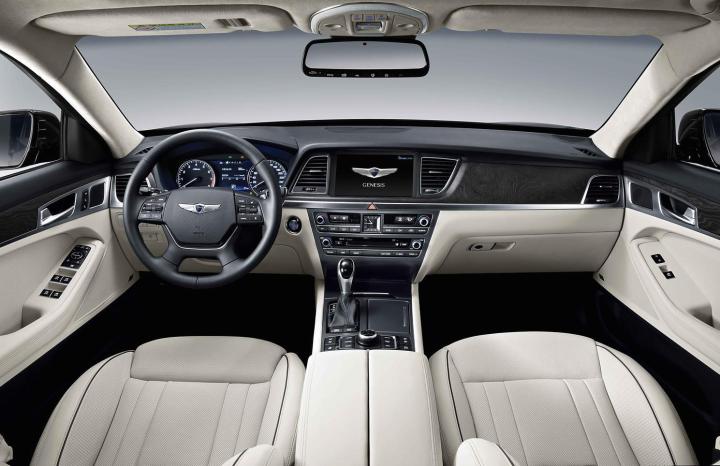
The brand will officially set its Genesis name apart from the rest of the automaker as a luxury marque with a six-vehicle lineup planned by 2020. Previewed by concepts like the Vision G Coupe, the Genesis nameplate will denote unique designs, G-based naming structures, and improved customer service experiences.
Though Hyundai and its sister company, Kia, had been going back-and-forth for a while in deciding which badge would own luxury segment vehicles, the previous experiments were inconclusive. Kia’s K900 and Hyundai’s Equus equally established “affordable luxury” personalities, but neither sold particularly well.
By operating under the independent Genesis brand, Hyundai can more directly rival Toyota’s Lexus, Honda’s Acura, and Nissan’s Infiniti luxury vehicles.
Obviously this means Hyundai will need to rename one of its best-selling models (the Genesis), but it also means its naming convention will change. Luxury models will start with the letter G, followed by a number to signify the car’s segment. It’s a good thing Infiniti moved onto its Q-naming structure, or the Japanese brand would have been mighty upset with a Genesis G40 to rival its G37.
“We have created this new Genesis brand with a complete focus on our customers who want smart ownership experiences that save time and effort, with practical innovations that enhance satisfaction,” said Euisun Chung, Hyundai Motor Company Vice Chairman. “The Genesis brand will fulfill these expectations, becoming a market leader through our human-centered brand strategy.”
Genesis models won’t just be about luxury, either. Like its Japanese rivals, Hyundai will offer vehicles with more performance, higher-end technology, and tailored levels of customer service.
The first models to slot under the Genesis brand will be the Hyundai Equus and Genesis sedans. There are also plans for a mid-sized SUV to rival Lexus’s RX. Let’s hope a production version Vision G also is in the works.
Editors' Recommendations
- Amazon and Hyundai partner on online car sales, in-car services
- Hyundai, Kia recall half a million U.S. cars over fire risk
- Apple in talks with Hyundai over possible car, automaker confirms
- Hyundai launching all-electric brand, with three models on the way
- 2021 Hyundai Elantra goes hybrid, adds wireless Apple CarPlay and Android Auto


